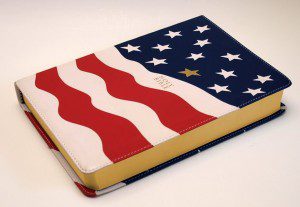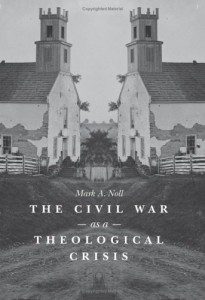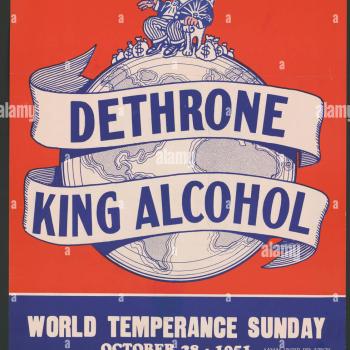
In my last post I described the pushback from some American evangelicals against God-and-country Bibles like the Patriot’s Bible or the Bicentennial Bible. Another woefully understudied, but potentially significant, source of dissent is global evangelicalism. To my knowledge Mark Noll is one of the few to analyze foreign perspectives on America’s treatment of Scripture. In one of the most striking chapters of The Civil War as a Theological Crisis, entitled “Opinions of Protestants Abroad,” Noll surveys how nineteenth-century European Christians regarded the American debate over slavery. None linked the defense of American slavery with the defense of scriptural authority. Many Europeans, according to Tracy McKenzie’s overview, observed what was “invisible to American believers, in particular the degree to which material interests, republican assumptions, and racial attitudes were shaping the Christians, North and South.” Many were withering in their assessments of American methodologies in debates over the Civil War. Noll agrees, noting the utter lack of “theological profundity.” American Christians were hyper-individualistic, lacked any central authority, and paid insufficient attention to tradition.
 Is there a twenty-first-century equivalent of this critique? Views from abroad are surely diverse themselves, but it is difficult to imagine a strong global constituency for The Patriot’s Bible. This is perhaps Perry’s perceptive point when he writes, “It may be that evangelicals’ goal of Americanizing the Bible is at cross-purposes with their goal of biblicizing America, because they make the Bible dependent on a particular reading of American history.” Of the individuals quoted in The Patriot’s Bible, the overwhelming majority are white, male, dead, and American. The appeal of this message and approach surely has real limits in the context of a rising Global South, a maturing theological educational system abroad, and burgeoning immigration to the U.S. from the Majority World.
Is there a twenty-first-century equivalent of this critique? Views from abroad are surely diverse themselves, but it is difficult to imagine a strong global constituency for The Patriot’s Bible. This is perhaps Perry’s perceptive point when he writes, “It may be that evangelicals’ goal of Americanizing the Bible is at cross-purposes with their goal of biblicizing America, because they make the Bible dependent on a particular reading of American history.” Of the individuals quoted in The Patriot’s Bible, the overwhelming majority are white, male, dead, and American. The appeal of this message and approach surely has real limits in the context of a rising Global South, a maturing theological educational system abroad, and burgeoning immigration to the U.S. from the Majority World.
Barton surely derives identity, strength, and internal cohesion from his sense of embattlement. But the weight of demography leans heavily against the kind of right-wing Christian nationalism represented by these patriotic bibles. It could be that The Patriot’s Bible—with its misplaced nostalgia and abuse of history—is a last gasp from marginal fundamentalists slipping into obscurity. After all, conservatives are losing the battle over same-sex marriage. Some are abandoning the faith entirely. Others, supplementing common-sense readings of Scripture with history and tradition, are “crossing the Tiber” (see Christian Smith’s The Bible Made Impossible) or taking the Canterbury Trail (see Robert Webber’s Evangelicals on the Canterbury Trail).
In the end, the rowdy assemblage of immigrant, Anabaptist, and Christian nationalist perspectives may simply be the logical end of an individualistic Protestantism. American evangelicals, as Tocqueville noted, were the authors of a democratic, non-hierarchical style that was simultaneously volatile and virile. Very few purveyors of usable history in this debate over Scripture and the nation have practiced the humility of Lincoln, who turned out to be one of the very few profound theological voices during the Civil War. Acknowledging that “the Almighty has his own purposes” is not the kind of sensibility that would depict Jesus cuffed with an American flag (as some New Left evangelicals have done)—or interpolate quotes from Dick Cheney into the biblical text (as some New Right evangelicals have done).
*** For a broader discussion on the topic of “The Bible in America, America in the Bible,” see the July-August 2014 edition of the Religion and Culture Web Forum hosted by the University of Chicago Divinity School. ***
















